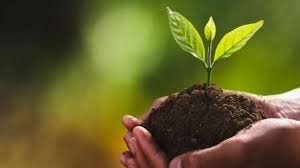

The Municipal Corporation of Delhi (MCD) is gearing up for its annual plantation drive, aiming to enhance the biodiversity of the capital city. Senior municipal officials have revealed plans to include a higher percentage of flowering and fruit-bearing trees this year, aligning with an effort to sustain local ecosystems.
Increased Plantation: MCD plans to plant approximately 619,000 plants this year, marking an 18% increase from last year’s 525,000. This initiative aims to augment the green cover across Delhi’s 15,226 neighbourhood parks and 12,700km of roads.
Annual Greening Exercise: Plantation drives in Delhi are an annual affair, especially prominent during the monsoon season. The forest department is the lead agency for these drives, collaborating with entities such as the New Delhi Municipal Council, Delhi Development Authority, and others.
Flowering and Fruit-Bearing Trees: As per fresh directives from the Delhi forest department, this year’s drive will see 25% of all plantations dedicated to flowering trees and 15% to fruit-bearing trees. Native species such as amaltas, gulmohar, ber, jamun, champa, amla, and mango are among those recommended for planting.
Ban on Non-Native Plants: MCD has prohibited four non-native plants—vilayati kikar, subabul, lantana, and eucalyptus—from the annual drive. These plants are considered unsuitable for the local ecosystem.
Bamboo Plantation: Responding to recommendations from lieutenant governor VK Saxena, MCD plans to promote the plantation of bamboo. “Bamboo Paradise” structures, made of bamboo plants, are in the works, offering enclosed spaces with sitting zones and play areas.
Eco-Friendly Initiatives: The focus is on creating sustainable ecosystems. Environmentalists emphasize the importance of planting native species that can thrive in Delhi’s unique soil and climatic conditions. Notably, the city’s first multi-purpose bamboo-themed park, Baansera, was set up under Saxena’s guidance along the Yamuna.
Sustainability First: Environmentalists like Pradip Krishen stress the need for sustainability, urging agencies to focus on trees adapted to Delhi’s soil and conditions, particularly in areas like the Ridges.
Native Species Advocacy: Experts like Padmavati Dwivedi emphasize the planting of native species that not only flower beautifully but also contribute to the local ecosystem. Exotic species are discouraged due to space constraints and the need to preserve public spaces.
Ecological History Consideration: Faiyaz Khudsar, scientist in-charge of DDA’s biodiversity parks programme, highlights the importance of understanding an area’s ecological history before undertaking plantation drives. This approach aids in creating functional ecosystems using native fruit-bearing and flowering trees.
MCD’s initiative aligns with a broader goal of enhancing Delhi’s green cover while promoting sustainability and preserving native flora.